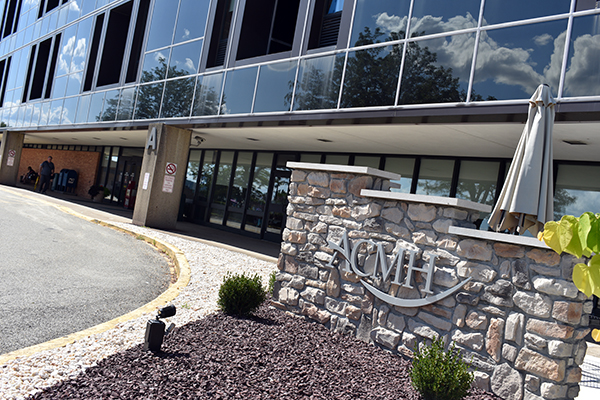 Governor Tom Wolf announced that ACMH Hospital in East Franklin Township has agreed to participate in the Pennsylvania Rural Health Model, aimed at ensuring the financial viability of hospitals in rural areas across Pennsylvania, and the latest step in transforming health care delivery in the Commonwealth. The model is the first of its kind in the nation.
Governor Tom Wolf announced that ACMH Hospital in East Franklin Township has agreed to participate in the Pennsylvania Rural Health Model, aimed at ensuring the financial viability of hospitals in rural areas across Pennsylvania, and the latest step in transforming health care delivery in the Commonwealth. The model is the first of its kind in the nation.
The Rural Health Model is an alternative payment model, transitioning hospitals from a fee-for-service model to a global budget payment. Payment for the global budget comes from multiple-payers, including private and public insurers. Instead of hospitals getting paid when someone is admitted to the hospital, they will receive a predictable amount of money at a specified time to provide services in the community.
Through this change in payment model, the hospitals will be able to transform care locally to better meet the health needs of the community. This includes opportunities to assess items that may traditionally fall outside of the role of the hospital, such as transportation, broadband internet access, etc.
In addition, Aetna will join the five other insurance providers as private insurance payers for the model to make up a total of six participating insurers. Gateway, Geisinger, Highmark, Medicare and UPMC are also participating in the program. Together, the commercial insurers represent nearly half of the individual and small group market insurance population in the state.
A total of 67 hospitals are eligible for participation in the model based on the definition of a rural hospital developed by the Center for Rural Pennsylvania. With 13 hospitals now involved in the program, nearly 20% of eligible hospitals will be participating in the program in 2020. While this is a credit to the desire of these hospitals to provide transformative care in their area, it also means there is still much work to be done to bring sustainability to rural hospitals in Pennsylvania.
“The Rural Health Model is a transformative step that changes the financial model for hospitals in rural areas,” Secretary of Health Dr. Rachel Levine said. “This is a step that will help achieve financial stability for these facilities and aims to improve the overall health of the community.”
The model will help ensure that rural hospitals, which are often an economic driver in rural areas, stay open, that jobs stay local and that sustainable access to health care is available to residents living in rural areas.
